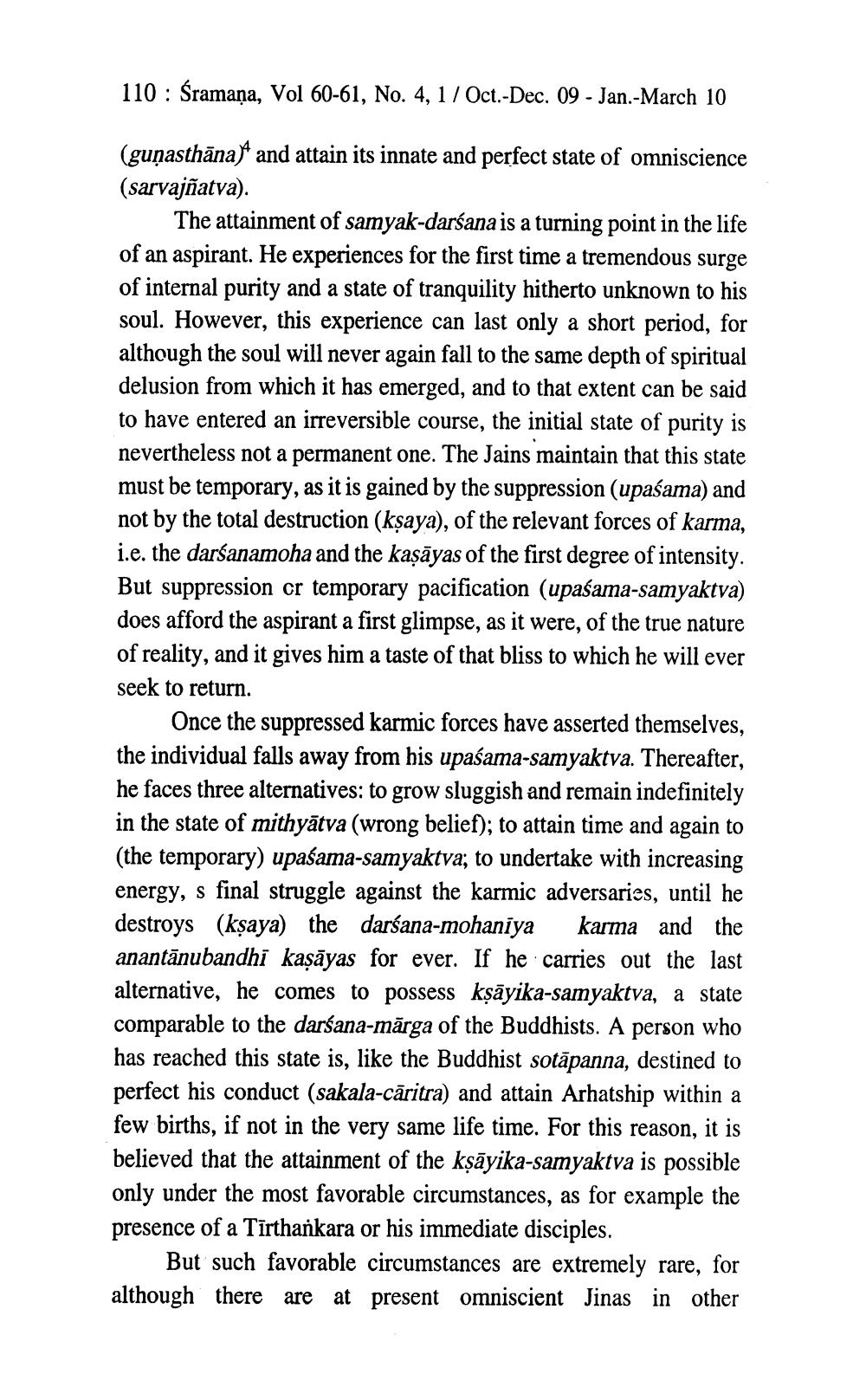________________
110 Śramana, Vol 60-61, No. 4, 1/ Oct.-Dec. 09 - Jan.-March 10 (guṇasthāna) and attain its innate and perfect state of omniscience (sarvajñatva).
The attainment of samyak-darśana is a turning point in the life of an aspirant. He experiences for the first time a tremendous surge of internal purity and a state of tranquility hitherto unknown to his soul. However, this experience can last only a short period, for although the soul will never again fall to the same depth of spiritual delusion from which it has emerged, and to that extent can be said to have entered an irreversible course, the initial state of purity is nevertheless not a permanent one. The Jains maintain that this state must be temporary, as it is gained by the suppression (upaśama) and not by the total destruction (kṣaya), of the relevant forces of karma, i.e. the darśanamoha and the kaṣayas of the first degree of intensity. But suppression or temporary pacification (upaśama-samyaktva) does afford the aspirant a first glimpse, as it were, of the true nature of reality, and it gives him a taste of that bliss to which he will ever seek to return.
Once the suppressed karmic forces have asserted themselves, the individual falls away from his upaśama-samyaktva. Thereafter, he faces three alternatives: to grow sluggish and remain indefinitely in the state of mithyātva (wrong belief); to attain time and again to (the temporary) upaśama-samyaktva; to undertake with increasing energy, s final struggle against the karmic adversaries, until he destroys (kṣaya) the darśana-mohaniya karma and the anantānubandhi kaṣāyas for ever. If he carries out the last alternative, he comes to possess kṣāyika-samyaktva, a state comparable to the darśana-marga of the Buddhists. A person who has reached this state is, like the Buddhist sotapanna, destined to perfect his conduct (sakala-cāritra) and attain Arhatship within a few births, if not in the very same life time. For this reason, it is believed that the attainment of the kṣayika-samyaktva is possible only under the most favorable circumstances, as for example the presence of a Tirthankara or his immediate disciples.
But such favorable circumstances are extremely rare, for although there are at present omniscient Jinas in other




